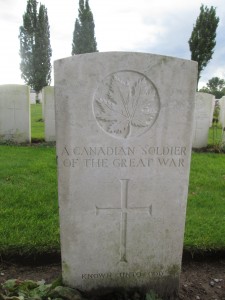Have you ever wondered how religions can possibly reconcile the fact that their deity is omnipresent, omnipotent, and omniscient, and yet they are not responsible for evil? This is my answer to you.
The universe is governed by two forces, the Seer and the Mover. They have always existed and will continue to exist forever, for they are indestructible and eternal. The Seer remembers all that happened in the past and knows all that will happen. To Her, all events stretch out in an unalterable and static sequence extending ad infinitum to the past and future. However, She is deaf, and she is without any power to change this sequence of events or carry out that which she sees. The Mover, however, does not have memory, cannot foretell the future, and is mute, but He has limitless power to create and destroy. The Seer commands the Mover in every action, and the Mover invariably obeys.
The Seer and the Mover, in fulfilling their destiny, gives birth to two twins: the girl they name Serena and the boy they name Chaos. As children of their immortal parents, they inherit half of their traits from each of their parents. Serena is endowed the fine craftsmanship of her father and the pensive nature of her mother. She spends her time molding beautiful things and is ever at her mother’s side attending to her needs. Chaos takes after his father in his boundless energy and dynamism, while he is more like his mother in his intellectualism and awareness of past and future. He spends his time as an assistant to his father, running to and fro in an endless stream of errands.
At one point in time the Seer says to her daughter: “Serena, make a utopia, and let me perceive its perfection.”
Serena obeys, as she always does. She crafts a world within a single point, but inside it was untapped potential and ideal Forms. It was lifeless and perfect. All the parts contained within has no motion, and therefore it is in complete harmony. Her mother regarded it and saw that it was good.
Chaos approaches to see what his sister has created. “Let me see it!” He demanded. “Why, there is nothing moving in this?” Before his sister could protest, Chaos pulled the perfect world apart and released its potential. He gave motion and life to the world, the Big Bang.
“You’ve ruined it!” Serena exclaims. “Now that the world is in motion, it would move away from its perfect state and will degrade into complete disorder! Stars will be born; they will collide into one another, and they will explode or dwindle. Living things will be born and they shall strive with one another and their world until they die. You have introduced evil to my world by giving it life, and there shall be discord in a universe that was once still and perfect.”
Serena knows that her ideal world is beyond repair. Chaos will prevail by consuming her perfect world until all things shall turn to dust, until every atom has been converted into useless energy. Chaos gives life and motion to all things, while Serena brings death and stillness to her creation; however, Chaos will ultimately win because the world can only become more disorderly. So, as you can see, every breath that we take is just Chaos directing the universe’s course to maximum entropy. To live and to give motion to things is to create discord in the countless forms of collision, competition, and consumption. Live is the verb for evil; it is no coincidence that the two words are composed of the same letters, only backwards.
A story cannot be captured in a instant, and must take place over some time interval to allow for change, for that is the nature of stories, a documentation of change. But stories can be mute, for all that story means is an interaction or an exchange between some given existents. The story of our universe is mute, and Chaos is the storyteller of our universe. And though we have only one possible ending, we must dwell in his and the Seer’s predetermined story, or fate, if you like that label better.
Be careful about the stories you tell and the stories you listen to — because once a story is told it can never be taken back.
Works cited:
“Determinism.” The Information Philosopher. Informationphilsopher.com. N.p. N. d. Web. 29 May 2015. http://www.informationphilosopher.com/freedom/determinism.html
Lavender, Gemma. “What is Heat Death?” Space Answers. Spaceanswers.org. N.p. 17 May 2013. Web. 29 May 2015. http://www.spaceanswers.com/deep-space/what-is-heat-death/
“Plato and The Theory of Forms.” philosophical society.com. Philosophicalsociety.com. N.p. N.d. Web. 29 May 2015. http://www.philosophicalsociety.com/archives/plato%20and%20the%20theory%20of%20forms.htm
Van den Dungen, Wim. “Essay on Theodicy.” Philsoophy: Theodicy. SOFIATopia.org. N.p. N.d. Web. 29 May 2015. http://www.sofiatopia.org/equiaeon/theodicy.htm
